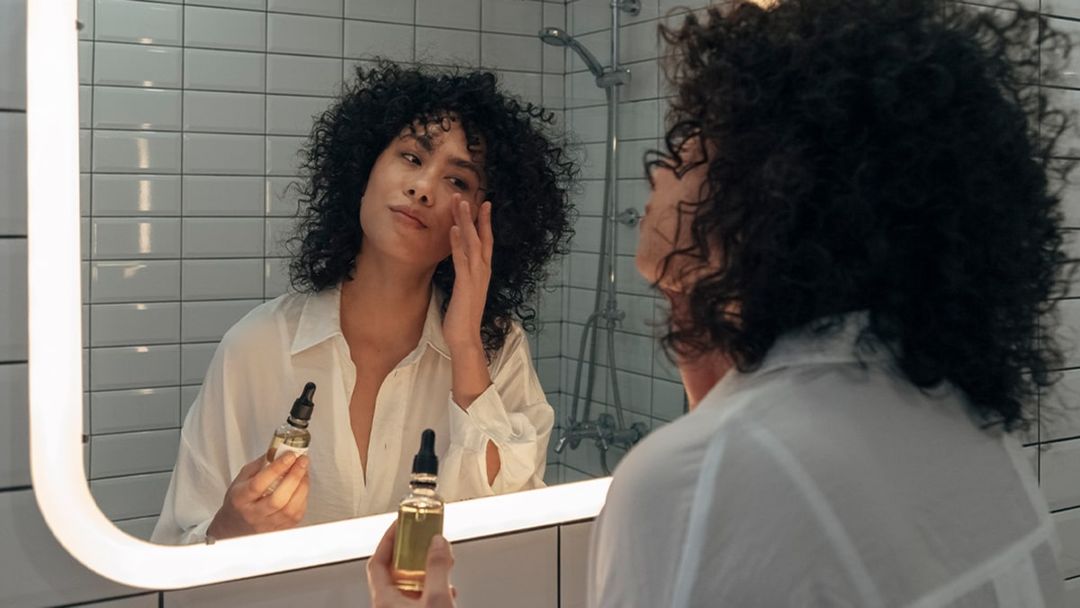In this article
- What is self-care, and what types are people prioritising?
- Who is spending the most on self-care?
- What self-care activities are people spending the most on?
- How to budget for self-care and be mindful with your spending
- How self-care spending has changed due to the cost of living
- Why self-care is important
Self care nation
Aqua reveals the self-care priorities of people in the UK.

Whether you like to curl up with a book, take a trip to the spa, or spend a day with loved ones, self-care is a big part of what keeps us happy and healthy. While it may not have been a focus for the majority in the past, social media platforms like TikTok and Instagram have put the importance of self-care at the forefront of modern society. But, with people continuing to adjust their budgets in the current financial climate, are we still prioritising our wellness?
With this question in mind, we’ve conducted a new survey looking at the self-care priorities of people in the UK. The study analyses which forms of self-care are most important to Brits, which wellness activities are costing people the most, and how the cost of living crisis has impacted how much they are spending on their personal well-being.
Our experts have also provided their top tips for how best to manage your self-care spend in your monthly budget and also explained why financial self-care is such an important part of reducing stress in our daily lives.
What is self-care, and what types are people prioritising?
From pursuing new hobbies to getting enough sleep, there are countless ways we can look to take better care of ourselves and practise the many forms of self-care, such as emotional, physical, and financial. No matter what it looks like to you, self-care is all about improving and preserving your own happiness and wellbeing.
Our research found that Brits are prioritising mental self-care the most, with 36% of people saying this is the most important thing when it comes to their personal wellness. Mental self-care involves activities that support cognitive and intellectual wellbeing, for example, reading, learning new skills, pursuing hobbies, or engaging in creative outlets. We found that this is the main type of self-care women are prioritising, with two-fifths (39%) stating this to be the case. While it’s not the top priority for men, one third (32%) still say their mental well-being is very important to them.
In second place is physical self-care, with 35% of people saying this is the most important form of self-care for them. This can include activities such as regular exercise, making sure to eat properly, and getting enough sleep. This is the type of self-care that men (35%) are prioritising the most, though 35% of women also say physical wellbeing is a main focus for them as well. It’s also the most important form of self-care for those aged over 55 (41%).
Financial self-care is the third most important form of personal wellness for Brits, with nearly one-third (29%) saying they prioritise this in their daily lives. Practising financial self-care means focusing your time and energy on your money situation. This can mean making concrete goals to work towards a better financial future and finding ways to support a healthy money mindset.
With the current economic climate in the UK being so challenging, it’s more important than ever to practise financial self-care. Try to build it into your daily or weekly routine, whether that means keeping an eye on your bank balance, tracking your spending habits, or setting new financial intentions.
Emotional self-care (27%) and social self-care (22%) round off the top five most important types of self-care for Brits.
Who is spending the most on self-care?
Everyone’s situations and lifestyles are different. We have varying budgets for everyday essentials such as rent and utilities, so it makes sense that we also have different budgets to work to when it comes to self-care.
We found that 90% of Brits partake in some form of self-care, and they spend on average £53 per month, with the amount differing significantly between age groups. Whilst 94% of 25-34 year olds partake in self-care (the highest out of all age groups) it is those aged between 16 and 24 who are spending the most on it. 92% of this age group take part in some form of wellness, and spend an average of £70 per month. 88% of over 55’s are taking part in self-care, averaging around £39 per month, however, one in three of this age group say they don’t spend any money on wellness at all.
We also found that out of those who do participate in self-care, some cities are more willing to spend money on this than others. Glaswegians are spending the most, at £67 per month, followed by London (£62) and Sheffield (£58). In comparison, those living in Plymouth, Leeds, and Cardiff are spending the least on self-care each month, with an average of just £40.
What self-care activities are people spending the most on?
Our survey also looked into the individual items and activities people are spending the most on in the name of self-care. Out of the Brits who do partake in self-care activities, we found that days out with family are not only the most popular self care activity, with 84% of people prioritise this, but it is also the activity they are spending the most on, costing them an average of £76 per month.
When it comes to the other self-care activities that Brits spend the most on, days out with a partner has come in second. Over three quarters (79%) of Brits enjoy activities with their other half each month, and spend an average of £73. Days out with friends (£63) has the third biggest spend, and it’s also the second most popular self-care activity, with 83% of people enjoying some quality time with their buddies. Given that social wellbeing ranks within the top five on the list of self-care priorities, it makes sense that Brits are willing to invest in these areas.
Following this, on the list of self-care activities that Brits are spending the most on, solo outings, and taking a trip to the spa have come in joint fourth, with those who partake in these tending to spend around £52 a month on each. We’re more likely to indulge in some alone time however, with 75% of Brits partaking in solo activities each month, compared with 67% who say they like to treat themselves to a spa day. Self-care is all about putting your health and happiness first while trying to reduce stress in our lives, so it’s great to see that Brits are taking active steps to do this.
Are people factoring self-care into their monthly budget?
These might be the types of self-care activities that people are spending the most on, but this doesn’t necessarily mean they are being properly factored into our monthly budgets. To explore this further, the study delved a little deeper into what wellbeing activities are actually being included in a financial plan.
83% of people surveyed say they create a monthly budget, and days out with a partner (23%) or family (22%) are the top self-care activities that Brits tend to factor into these. Given that these are the areas that people spend the most on, it’s good to see that they are being factored into a financial plan. Hairdresser appointments, days out with friends, and skincare products all come in third place, with one in five (20%) people saying each of these is factored into their monthly budget.
How to budget for self-care and be mindful with your spending
While self-care is sometimes viewed as an indulgence, you should start looking at it as an essential part of your overall wellbeing. It’s important that you set aside both time and money for the things that make you happy. To help Brits make their wellness more of a priority, we’ve put together some top tips for how to budget for self-care.
1. Determine your self-care fund
First things first, you need to work out how much money you can actually allocate to self-care each month. Take a look at your income stream, and compare it with your non-flexible outgoings, including expenses like rent, bills, food, and travel. Once you have a clear picture of your financial situation, it will be a lot easier to determine just how much you have left for self-care activities.
2. Define your self-care priorities
When it comes to your self-care priorities, work out what exactly makes you feel like the happiest, healthiest version of you. Everyone will have different ideas of what self-care should look like, so don’t worry too much about what friends, family, or even people on social media are doing.
Alongside thinking about what makes you feel good, also think about what’s achievable for you. A spa day every month might be a bit out of budget, but saving up to treat yourself to a massage every so often could be a really rewarding experience.
3. Don’t forget about free self-care
It’s also important to remember that self-care doesn’t have to be expensive. Make sure you cover the basics first. Things like making sure you drink enough water, moving your body and getting enough sleep are all free and effective ways to take care of yourself.
You can also make small swaps to keep costs down. For example, try an at-home workout on YouTube rather than paying for a gym class, borrow books from the library or buy them second-hand, and for managing stress, try free meditation apps or find breathing exercises online.
4. Make sure to schedule time to self-care
Above all, make sure you allocate time for self-care, as well as budget. Whether it’s on a daily, weekly, or monthly basis, set time aside to do those things that make you happy. It could be five minutes of meditation per day, one cooking class a week, or a therapy session each month. Once you’ve figured out what you need to stay happy and healthy, and how much money you can afford to spend on these activities, the next step is making this self-care part of your ongoing routine.
How self-care spending has changed due to the cost of living
The cost of living crisis has impacted nearly every area of our daily lives, and our survey has revealed that for many people, their self-care spending has been affected too. Nearly one-third (31%) of people in the UK say they are spending less on self-care due to rising costs. However, an additional 20% of people do say they are actually spending more in the current financial climate.
This does differ depending on age and location, however. We found that younger generations are seemingly less impacted by rising costs, with 29% of those aged between 16 and 24 saying they are spending more on self-care now. However, a quarter (24%) do say they are spending less. In contrast, a mere 12% of the over-55s say they are spending more, and one-third (31%) say they’re spending less due to rising costs.
When it comes to location, those in Newcastle and Belfast have been impacted the most. Nearly two-fifths (38%) of Geordies are spending less on self-care now, and just 11% are spending more. Similarly in Belfast, 38% are spending less, and only 16% are spending more.
Bristol is the only UK city where the number of residents who are spending more money now (27%) outweighs the number who are spending less (26%) due to the cost of living crisis.
Why self-care is important
Sharvan Selvam, Commercial Director at Aqua says, “We should all be prioritising our personal health and wellbeing, but it’s important to focus on activities that are affordable to you. Remember that self-care looks different for everyone, and don’t be tempted to spend outside of your means because of what you see on social media, or what others around you are doing."
“While it might not be the first thing that comes to mind when thinking about self-care, financial self-care is also very important for our wellbeing. You can make a start by setting goals that will help you work towards a better financial future, whether that’s building up savings, improving your credit score, or establishing healthier money habits. Whilst money doesn’t buy happiness, alleviating some of your money worries can be incredibly beneficial for your overall wellbeing.”
Methodology & Sources
This survey was conducted by Aqua to 2,009 general UK consumers between 28/06/2023 - 30/06/2023.
The monetary spending values are based on respondents who answered that they do partake in that form of self care or that activity.
Failure to make payments on time or to stay within your credit limit means that you will pay additional charges and may make obtaining credit in the future more expensive and difficult.
Contributors


You might also like
Slide 1 of 3
Everyday budgeting
Budgeting bills and everyday budgeting tips.

Couples' spending habits in the UK
Our research uncovers the financial topics that put the most strain on relationships

The cost of a first date
Survey finds almost a quarter of single Brits are planning to stop dating due to the cost of living crisis.
The smart way to build better credit
Aqua is the credit card that gives you the power to improve your credit score
